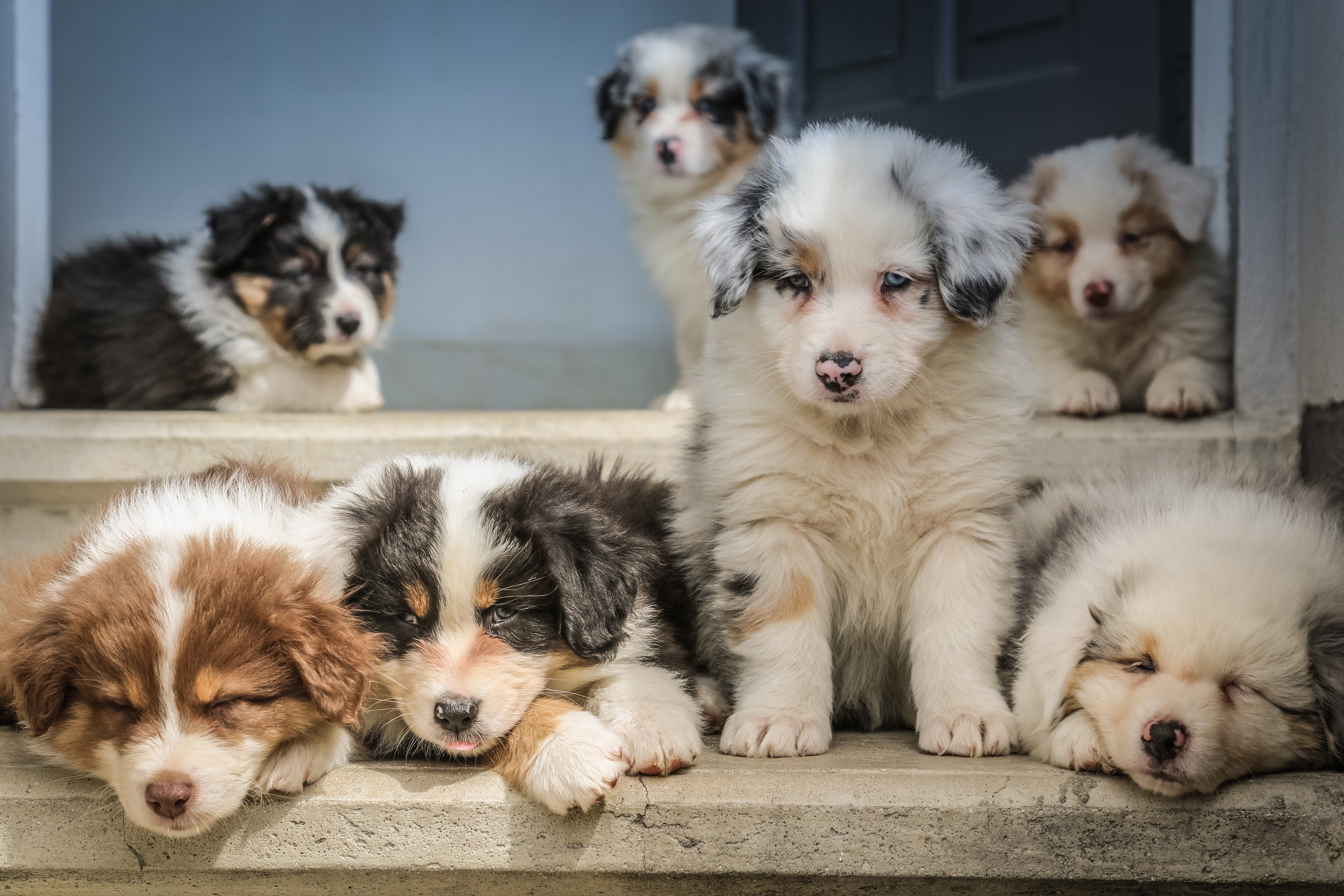May is dedicated to raising awareness about cancer. This subject is very important for our animal friends. Dogs and cats in the United States face a significant risk of cancer. In fact, it’s the number one cause of disease-related death. Around 25% of dogs and 20% of cats will eventually be diagnosed with this condition. Continue reading to find important information about pet cancer from a Saginaw, MI veterinarianI.
What Are Some Ways To Tell If Your Pet Has Cancer?
Cancer’s warning signs vary a lot from one pet to another. Many pets also try to hide signs of sickness. That said, here are some of the key ones:
- Decreased Energy Levels
- Mood Swings
- Difficulties With Eating
- Limping
- Unpleasant Odors
- Bleeding Or Discharge
- Fatigue
- Vomiting
- Decrease In Appetite
- Wounds
- Increased Thirst
- Weight Loss
- Respiratory Problems
- Inflammation
- Discomfort
- Unusual Breath Odor
- An Enlarged Abdomen
- Changes In Bathroom Habits
- Urinary Problems
- Coughing
- Straining During Elimination
- Decreased Stamina
It’s also crucial to be aware of any significant changes in behavior. When Fluffy and Fido aren’t feeling well, their behavior may differ from their usual demeanor. A loving pet can sometimes become less sociable, while a more independent one may suddenly crave more attention and affection. You might also observe differences in the way your pet communicates.
If you encounter any of these signs, contact your veterinary clinic immediately. Diagnosing an issue as early as possible can significantly impact treatment outcomes.
How Do Dysplasia, Growth, And Cancer Differ From Each Other?
Neoplasia, tumors, and cancers are separate entities, although they share many similarities.
Neoplasia is the term used to describe the abnormal growth of cells, which can be either benign or cancerous. A tumor is the result of cells undergoing abnormal growth. While benign tumors can still be a cause for concern, their ability to spread throughout the body is usually limited. Cancerous tumors have the ability to quickly spread and move to different areas of the body. In very simple terms, cancer is a potentially harmful form of abnormal tissue growth. Ask your vet for more information.
What Are The Available Treatments For Pets Diagnosed With Cancer?
As with humans, pets have three main options for cancer treatment: surgery, chemotherapy, and radiation. Those are the major ones, anyway.
Nowadays, there is a diverse range of alternative and/or supplemental options available, including immunotherapy, cryotherapy, hyperthermia, and radioactive Iodine I-131. Another alternative is palliative care, which focuses on ensuring the pet’s comfort rather than aggressively fighting the cancer. Additional treatments that can be beneficial include laser therapy, nutritional therapy, and acupuncture. A combination of therapies can be highly beneficial for many pets.
Keep in mind that every pet is different. The best course of action for your pet ultimately depends on the diagnosis. Once your pet has been diagnosed and evaluated, your veterinarian will give you more detailed information about the available options.
There are several things to consider, including the stage and type of cancer, the cost and duration of treatment, and the impact on your pet’s quality of life. A dog with an early-stage tumor in its leg may have a more positive prognosis compared to a cat with advanced lung cancer
That said, keep in mind that a cancer diagnosis doesn’t have to be the final chapter for our cherished furry companions. Each pet’s prognosis varies. For instance, one study revealed that approximately 70% of cats who underwent chemotherapy for lymphoma went into remission.
What Are Some Factors That Can Contribute To The Development Of Cancer In Pets?
The prevalence of cancer in pets is on the rise, just as it is in humans. This is likely due to increased exposure to substances that are known to cause cancer, such as pesticides, chemicals, secondhand tobacco, and other similar agents. There is no clear-cut culprit for pet cancer, but it seems that both environmental and genetic factors have a significant impact.
What Kinds Of Cancer Do Pets Most Often Get?
Pets can be affected by many different cancer types. Believe it or not, there are more than 30 different types of lymphoma alone! Although we cannot provide a comprehensive analysis of all of them here, we can briefly discuss some of the most commonly encountered ones:
- Fibrosarcoma is a particular type of cancer that impacts the body’s soft tissues. It usually spreads slowly, but it can become very aggressive.
- Mast Cell Tumors This specific type of cancer often leads to the development of tumors on or near the skin’s surface. Tumors also sometimes appear on other areas of the body, such as the eyes, mouth, throat, and spine.
- Mammary Tumors Just like humans, pets can also develop breast cancer. Unfortunately, a significant number of mammary tumors are cancerous and can spread to other parts of the body such as the lungs and lymph nodes.
- Lymphoma Lymphoma affects a specific type of white blood cell, the lymphocyte, as well as other lymphoid tissues, such as the lymph nodes, bone marrow, and liver.
- Squamous Cell Carcinoma (SSC) This is a form of cancer that affects the mouth. Pay close attention to certain indicators, such as excessive drooling, unexplained bleeding, and difficulties with eating.
- Feline Leukemia (FeLV) Around 2 to 3 percent of cats are affected by the feline leukemia virus, which weakens their immune system and makes them more vulnerable to various viruses and conditions. Luckily, there is a vaccine available. If your kitty has not received its vaccinations yet, schedule it with your veterinarian as soon as possible.
- Osteosarcoma Osteosarcoma primarily impacts the skeletal system. It is quite painful. Certain dog breeds, like Golden Retrievers, German Shepherds, Dobermans, Boxers, Irish Wolfhounds, Rottweilers, and Weimaraners, have a higher susceptibility to developing this type of cancer.
Other cancers include the following:
- Mastocytoma
- Hemangiosarcoma
- Melanoma
- Hemangiosarcoma
- Anal gland carcinoma
- Neoplasm
- Transitional cell carcinoma
- Stomach cancer
- Bladder cancer
- Fibrosarcoma
- Breast cancer
- Histiocytic sarcoma
- Nasal tumors
- Skin cancer
- Brain Tumors
- Leukaemia
- Liver cancer
- Papilloma
Do Certain Breeds Have A Higher Susceptibility To Cancer Compared To Others?
Dogs of all breeds and ages can be affected by cancer. However, some puppies may be more vulnerable to potential hazards than others. Some dog breeds are more prone to this. Some of the dog breeds on this list are the Bernese Mountain Dog, German Shepherd, Great Dane, Poodle, Beagle, Scottish Terrier, Bulldog, Bull Mastiff, Bouvier des Flandres, Golden Retriever, Rottweiler, Cocker Spaniel, Bichon Frisé, Doberman Pinscher, Boston Terrier, Miniature Schnauzer, and Pug.
What about mixed-breed dogs? If you’re uncertain about your pet’s breed, it may be worth considering a doggy DNA test. This information is incredibly valuable for identifying any specific illnesses or diseases that Fido may be prone to.
We can’t forget about our feline friends. More research is needed on cancer in kitties. However, when it comes to cats, there is also not as much variation in their physiology based on breed compared to dogs. However, Siamese cats do appear to be more prone to it.
Book An Appointment At Our Saginaw, MI Veterinary Hospital
Have you observed any of these symptoms in your beloved companion? Are you concerned about the potential for your cherished pet to develop cancer? Contact our Saginaw, MI pet hospital today!



